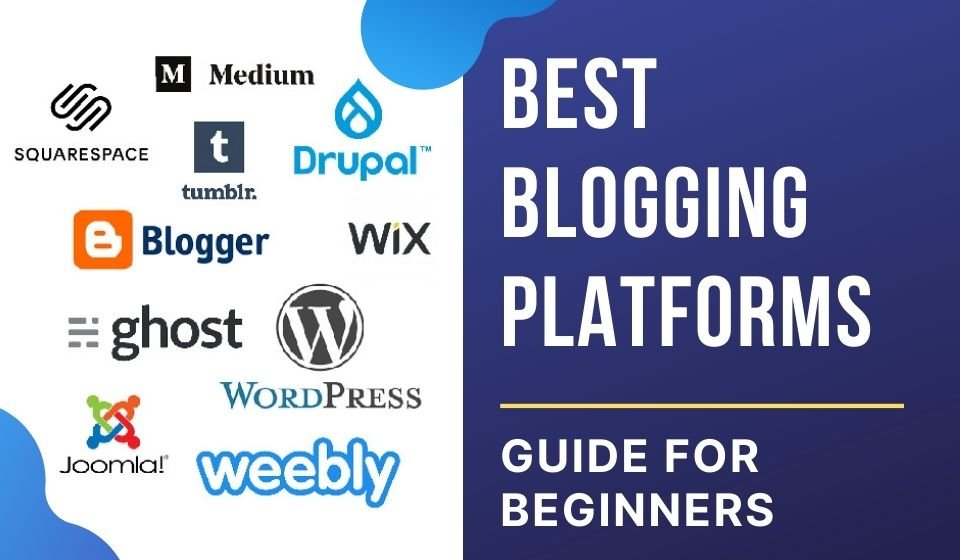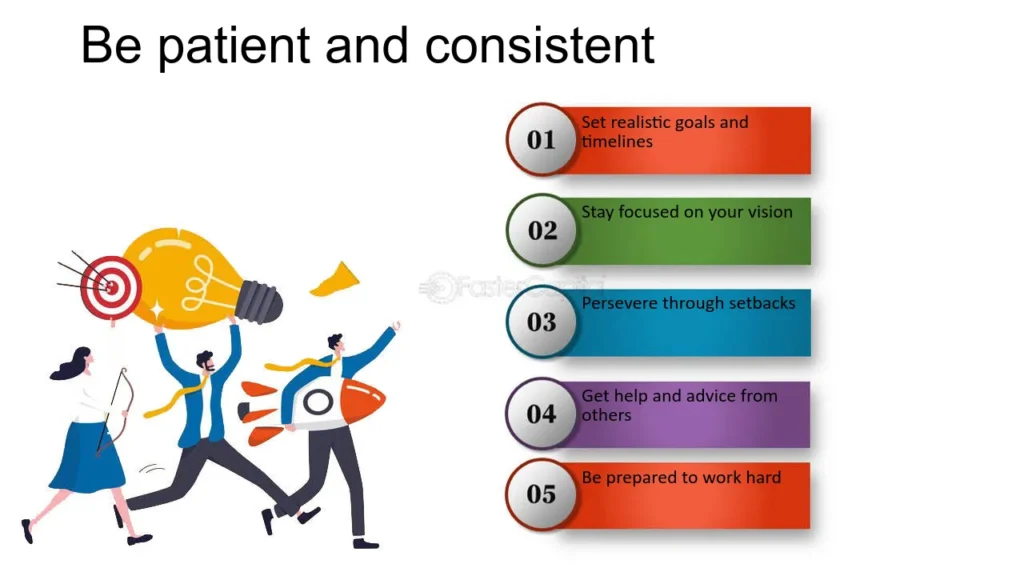
Blogging is an incredibly powerful medium with which to express your ideas, expertise, and passion to the world. Name it: building a personal brand, establishing a business, or giving vent to yourself—a blog can be quite fulfilling and profitable. Based in the UK and looking to create a blog? Well, consider yourself in luck: the UK has a strong digital culture, an extremely active online community, and an ever-growing hunger for more content across a wide variety of niches. At the same time, anyone hoping to establish a successful blog should be ready to plan, strategize, and put in lots of work.
In this article, we go over all the best tips on how to make a successful UK blog, from finding your niche to growing an audience and monetizing your content.
1. Choose Your Niche Carefully
One of the most important decisions which one has to undertake while setting up the blog relates to its niche. A niche in essence refers to the umbrella theme or topic of your blog; therefore, a correct choice in which you are passionate about, and also a subject matter expert, will go a long way in creating content, communicating with your audience, and establishing thought leadership within that area.

How to Choose Your Niche:
- Identify what interests you and in which domain your expertise lies. Ask yourself, what do you love talking about? What would you talk for hours about? It could be anything from traveling, lifestyle, finance, and food to further niches down, such as veganism, eco-friendly living, and personal development.
- Competition research: Spend some time looking at what other bloggers are doing in the niche you have chosen. Are there enough blogs out already? Can you find an underrepresented sub-niche, or one where there is room for your voice?
- Know your audience: Think about who would be interested in reading your blog. Would they be teenagers, young professionals, parents, or retirees? Knowing your target audience will then help you know what to base your content on, as well as the marketing of your blog.
Popular blog niches :
- Lifestyle and personal development
- Food and recipes, particularly those to do with healthy eating or sustainable cooking
- Parenting
- Travel and UK-based destinations
- Fashion and beauty
- Tech reviews and tutorials
- Finance and money-saving tips
2. Choose the Right Blogging Platform

Once you have chosen a niche that you are interested in, you will have to decide on the blogging platform on which to build and manage your blog. There are quite a number of options available with their own pros and cons. Popular blogging platforms that are in wide use in the UK include WordPress, Blogger, Wix, and Squarespace.
Platform Options:
- WordPress.org: It is an open-source alternative that will help you customize, with complete flexibility, though demanding to arrange and secure hosting on your own along with the purchase of a domain.
- Blogger: A free, easy-to-use platform owned by Google. It’s a good option for beginners but offers limited customization.
- Wix: A website builder that allows one to drag and drop items into place. It’s perfect for those who wish to build a blog in minutes with no coding knowledge.
- Squarespace: More artful, the templates are truly beautiful, making it an excellent choice for creatives or those desiring a more polished look.
For serious bloggers who wish to build a professional brand, WordPress.org is often the best choice because it is incredibly scalable, has tons of customization options, and a wide range of plugins to enhance functionality.
3. Get a Domain Name and Web Hosting

You need to have a self-hosted blog with your domain name to appear credible and gain the trust of your audience. This is very important if you are serious about blogging in the UK and later monetizing your content.
Domain name:
The domain name should be the actual web address, or URL, that a person would use to get to your blog. It needs to be short and memorable, related to the subject. Try to avoid long, complicated phrases.
Here are a few tips:
- Keep it simple and not hard to spell.
- Use keywords associated with your niche—for example, if one were dealing with or running a UK-related travel blog, uktravelguide.com is a great suggestion.
- Try to avoid things like hyphens and numbers because they are usually confusing to people.
- Ensure the domain is available and register it with a reputable domain provider like GoDaddy, Namecheap, or Google Domains.
Web hosting:
This is basically where your website files are hosted. Popular web hosts in the UK include Bluehost, SiteGround, and HostGator. Many of these companies also offer domain registration, so you can buy both at the same time.
When you choose a hosting provider, make sure it offers:
- Good customer support—24/7 if possible
- Fast loading speeds are important because they impact user experience and SEO.
- SSL certificates (to keep your site secure and improve Google rankings)
- A user-friendly interface for maintaining your blog
4. Design Your Blog for User Experience

Design is one of the most critical aspects in determining the success of your blog. A clean, professional-looking design will make visitors want to stay on your site, whereas too much clutter and an outdated design will drive users away. You need to focus on making your blog convenient, easy to use, mobile-friendly, and generally attractive from both aesthetic and visual standpoints.
Design tips:
- Keep it simple: Simple outline, lots of white space. Some websites overwhelm their visitors with ads across the entire page and pop-ups.
- Mobile-friendly design: As most users use their smartphones to access blogs, your design must be responsive. All major blogging platforms, like WordPress and Squarespace, offer mobile-friendly themes.
- Use high-quality images: Posts with images usually drive more engagement; therefore, include high-resolution photos that will not look out of place in your posts. Some great resources to use for free high-quality images include Unsplash and Pexels.
- Choose a clean font: The text should be easy to read, especially on mobile devices. Use a clear, legible font and consider increasing the font size for better readability.
5. Creation of High-Quality Content
Well, content is the backbone of any blog. To achieve the best outcomes—attract and retain readers—you must develop worthy, well-penned, and informative content. Your blog posts should answer the solution to a problem or question that your target audience has.
Tips for creating quality content:
- Value to the readers: Think about what your readers want to learn from you. If, say, you have a travel blog in the UK, post content like “Top 10 Hidden Gems in London” or “The Ultimate Guide to Affordable UK Weekend Getaways.”
- Be authentic: Don’t just rehash what everyone else is saying. Find your voice and let it shine through in your writing. Authenticity builds trust with your readers.
- Long-form content is the focus: Research has shown that long-form content of more than 1,000 words does better in search rankings and keeps readers on your site longer. However, make sure that it will be only content but filled with information and interest for readers, not just a piece of fillers.
- Editing and proofreading: Grammar or spelling mistakes make you appear unprofessional. Always proofread your content before publishing it.
6. Promote Your Blog

Good content alone cannot be solely enough. One should actually promote the blog to reach its correct audience, and this promotion may be carried out in multiple ways: through organic and paid schemes across the United Kingdom.
Promotion Strategies:
- Social media: On Facebook, Instagram, Twitter, and Pinterest, among other social media platforms, it is easy to share your posts. You must create content on every platform to engage your audience.
- SEO (Search Engine Optimisation): Optimising your blog for search engines like Google will help you rank higher in search results and drive organic traffic to your blog. Use keyword research tools (like Google Keyword Planner or Ahrefs) to identify the best keywords for your niche.
- Email marketing: Build an email list and send out regular newsletters to your subscribers. Give away a free resource, like an ebook or checklist, in return for their email addresses. This helps build a loyal audience.
- Guest blogging: It is a great way to get exposure, build backlinks, and drive traffic to your site by writing guest posts for other blogs within your niche.
7. Monetise Your Blog

Having laid a good foundation, the next thing is monetizing your blog. Various ways of monetizing a blog in the UK include the following:
Monetization Options:
- Affiliate marketing: This involves selling a product or service on your blog, and the amount you are entitled to get will depend on every sale achieved via your affiliate link. Some of the well-known affiliate networks include Amazon Associates, ShareASale, and CJ Affiliate.
- Sponsored posts: Brands can compensate you for writing posts in the promotion of their products or services. Be sure that such products are close to your blog’s niche and values.
- Selling your own products or services: You may sell digital products—eBooks, online courses, printables, etc.—or offer services if you are highly knowledgeable in some domain.
- Advertising: You could place advertisements on your blog through services like Google AdSense when your viewership reaches a large enough size.
8. Be Consistent and Patient

Blogging is not something that should be done in the short run; it requires commitment. This could take a long time before one can have an audience or start reaping some money out of it, but all that takes time and consistency for one to get on top of things. Be regular in publishing; learn and keep learning—most importantly, enjoy it.
Conclusion
Blogging in the UK offers great creativity, a source of influence, and, not least, a good earner. All that is required is the proper identification of a niche, creation of a professional blog, valuable content, and promotion to nurture this blog that would resonate with an audience and continuously grow. Whether you blog for enjoyment or to make money, adhering to these top tips will provide a solid foundation on which to start a successful blog in the UK. Good luck!

very informative articles or reviews at this time.
This was beautiful Admin. Thank you for your reflections.
There is definately a lot to find out about this subject. I like all the points you made
Your ‘About Us’ page gives a trustworthy vibe — I know I’m reading content by someone who cares.
In-depth interface analysis provided review. Thanks for the business & marketing tips—they feel doable and not overhyped
The writing is clean, professional and feels international. Very inspiring for newbie writers.
Awesome! Its genuinely remarkable post, I have got much clear idea regarding from this post
Love how you blend UK culture insights with global blogging advice
Your marketing articles are so practical. I tried one tip and saw real traffic growth.
I visit UKBlogging.com every week — the variety of topics (business, lifestyle, tech) keeps me coming back
Very professional voice, yet warm and human. I trust every piece knowing you research well and mean what you write.
You weave mood, setting, and emotion so well. When I read your work, I feel transported.
There’s something authentic in your writing that sets you apart. Every post feels personal and universal at the same time.
Excellent good remarkable nice work brilliant enjoy fantastic experience great.
I absolutely love the depth you bring in every article. UKBlogging.com isn’t just blogging—it’s storytelling with soul.
Dinamobet